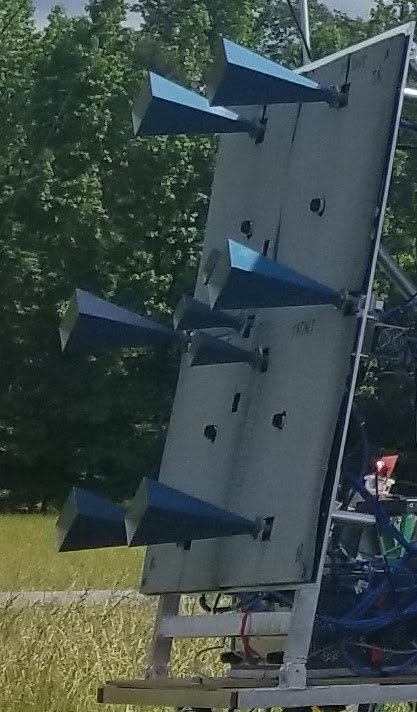SIGNAL & DATA PROCESSING
PRA emphasizes the development of innovative signal and data processing techniques and algorithms that enhance signal and measurement quality. In particular, PRA has developed a capability in matched and mis-matched filtering to minimize the impact of environmental interference effects such as jammers, clutter, multipath, and radar frequency interference. PRA has also developed a unique capability in interferometry data processing and highly specialized track filters.
Contact Information: E. Jeff Holder, Ph.D. Signal & Data Processing
RADAR HOLOGRAPHY
Through an Air Force SBIR contract, PRA developed combined analog Holographic and digital interference cancellation processes that cancelled noise jamming using a single radar pulse. The PRA Holographic Receiver provides increased dynamic range for strong interference sources while the PRA Sidelobe Canceller uses the Holographic receiver output to cancel the interference. PRA applied the Holographic canceller technique to Synthetic Aperture Radar data and demonstrated successful noise jammer cancellation.
Baseline Image
Before Cancellation
After Cancellation
ADAPTIVE INTERFERENCE CANCELLATION
PRA has developed a unique adaptive cancellation process to cancel strong interference. This adaptive cancellation process can be configured to implement optimal cancellation algorithms such as the Minimum Variance Distortionless Response (MVDR), Generalized Sidelobe Canceller (GSC), and Capon's Method. PRA has applied for a patent on this innovative technique and has shown that it can be used to mitigate various interference sources including noise jamming, RF interference, and discrete and distributed clutter.
Before Compresssion
After Compression
After Cancellation
RADAR INTERFEROMETRY
PRA is a leader in radar interferometry having experience that spans over two decades. PRA has developed and implemented signal processing for radar interferometric applications that enhance angle accuracy and mitigate interference. PRA has developed unique processing algorithms for the Precision Pulse Positioning System (3PS) which is a semi-active interferometric seeker guidance technique that can enhance interceptor effectiveness in short range air defense applications. Under a US Army contract, PRA is developing real-time processing for an innovative radar interferometer that will enable 3PS guidance.
OPTIMAL STATE ESTIMATION
PRA has developed track filters for improved state estimation for various applications including early warning for and intercept of incoming rocket, artillery, and mortars, tracking of sonobuoys by monitoring aircraft, intercept of direct fire weapons for vehicle defense, tracking of golf balls for golf monitoring devices, and tracking boost phase and post boost phase ballistic missile defense targets. PRA has experience in various tracking filters such as Kalman filters, maximum likelihood techniques, sigma-point filters, and particle filters.







